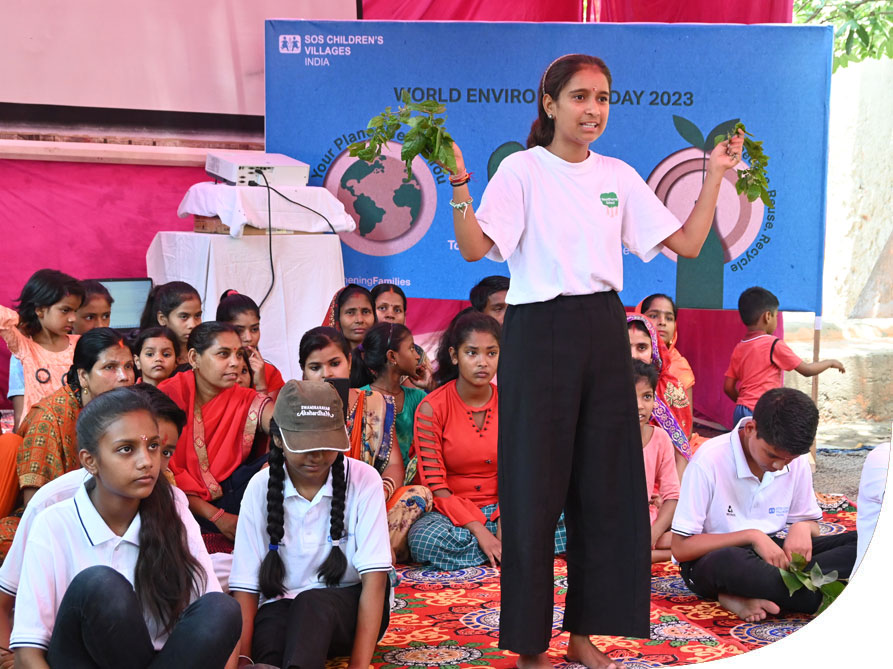
We have undertaken sustainability initiatives in most of the communities we work for (as part of our Family Strengthening Programme). The most important one is awareness generation, wherein we talk about environment-friendly initiatives that can be adopted in day-to-day life, contributing, in parallel, to economic progress. The subjects covered include global warming, waste disposal, e-waste handling, kitchen gardening, organic farming, hazardous waste handling, water harvesting, vermicomposting, climate change, Disaster Management and stoppage of plastic bag usage. Awareness sessions combine theoretical learning with practical implementation, which encourages deeper understanding and application. Some examples are as follows: the community, we serve, in Latur has adopted a bio-gas plant; children of the Bal Panchayat in Anangpur have applied the eco-bricks concept to make bricks with plastic bottles and bags, in addition to conducting cleanliness drives; and plantation drives are being undertaken, across communities, in most locations served.
Sustainability initiatives taken at various programme locations
(Anangpur, Jaipur, Shillong, Begusarai, Varanasi and Bhopal)
(Srinagar, Bhopal and Jaipur)
l (Anangpur and Jaipur)
(Guwahati, Latur, Rourkela and Bhopal)
(Latur)
(Latur)
(Anangpur)
(Anangpur, Bhuj, Srinagar, Jaipur, Guwahati, Raipur, Shillong, Begusarai, Latur, Bhopal)
(Bhuj)
(Srinagar, Jaipur)
(Bal Panchayat, Varanasi)
(Latur)
(Bhopal)
(Latur)
Across many Children’s Villages, solar power plants, vermiculture pits, biogas plants, solar water heaters, solar streetlights, sewage treatment plants, and rainwater harvesting plants have been installed. These measures have also led to reduced expenditure and carbon gas emissions, besides recharging the groundwater table, reduction in water consumption, and many other such benefits.
Sustainability initiatives taken at various SOS Children’s Villages India
augmented groundwater in 26 Children’s Villages
decreased electricity expense in 17 Children’s Villages
decreased electricity costs in 4 Children’s Villages
lowered cooking gas expense in 11 Children’s Villages
recycled water for gardening, contributing to substantial water conservation in 5 Children’s Villages
reduced electricity costs and carbon footprint in 7 Children’s Villages
improved waste management and fertiliser production in 19 Children’s Villages